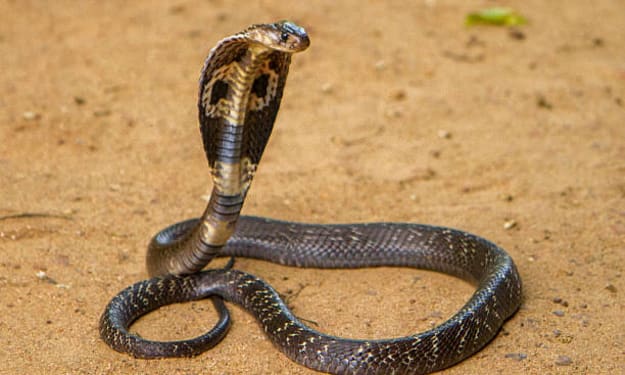How To Prevent Dumb Bees From Killing Us
Scientists believe that the world will suffer from bees’ inability to function well.

Bees are getting dumb, and we’re going to suffer.
Recently, I enjoyed reading Coffin Road by Peter May. In the book, a scientist tries to unravel the impact of neonicotinoid-based pesticides on bees. The thriller then explains the effects of this impact on human lives.
Although only fiction, the book made me think about the influence of pesticides on bees. I wanted to know if the theory put forth by the book is true or not.
Researching more, I realized the theory is certainly valid. A study from 2018 analyzed research and pieces of evidence from over 100 experiments and asserted that the currently trusted pesticides are indeed harmful to bees.
Why Are Bees Special?
In Barbara Kingsolver’s book, The Poisonwood Bible, a Baptist missionary assumes farming to be easy. He strives to grow a variety of crops in Africa. However, he struggles a lot as every crop he tries to grow wilts and dies without bees. He learned his lesson the hard way.
Many assume bees’ job to be simple. We see them as buzzing insects constantly flirting with flowers to produce honey and pollinate crops, but there’s more to them. These seemingly playful insects are an indispensable species on earth.
There are about 20,000 different kinds of bees in the world, pollinating around one-third of crops. Without them, plants will disappear, and we’ll follow them soon after.
“Bees have the world’s most difficult job.” — Dr. Harry Siviter
A study ascertained that bees use a technique called Proboscis Extension Response to remember scents. They have specific visual and olfactory patterns to link events to food sources. Based on these patterns, bees stick their tongues out when there’s a source of sugar or nectar in the vicinity.
Impeccable memory is crucial for bees. Worker bees learn to recognize efficient routes for scouring food. Even with seasonal changes, urbanization, and pollution, they can accurately remember previously taken trails and already visited flowers. They’re so good at this that military organizations are trying to manipulate them to find landmines and explosives.
What Is Happening to Bees?
Researchers tried to simulate real-life exposure of bees to pesticides. They exposed bees to varying levels of pesticides. They then studied the bees’ behavior and performance when prompted to scourge for food.
Scientists found exposure to even tiny doses of pesticides already has adverse impacts on bees’ learning and recalling capabilities. Their brain cells are damaged, they lose their skill to associate scents with food sources, and their navigation abilities are impaired. As these bees can no longer reach their hive, they wander away and break the colony. This phenomenon is called Colony Collapse Disorder (CCD).
This ill effect affects bees in other ways too:
- Bees wag their tails vigorously when their target is closer. It’s their way of communicating with the other bees. The other bees would notice the wagging and know that they’re approaching their destination. They would then wag their tails and pass on the information to the following group of bees. So when an infected bee leads the group, it’ll no longer remember the correct route, and communication becomes inaccurate.
- Usually, a bee colony is neat and tidy. Bees promptly remove all dead insects from the hive to maintain cleanliness. But when infected bees’ behavior changes, they no longer take care of hygiene. It affects more bees and finally leads to colony collapse.
How Are We Affected?
Bees are one of the most important pollinators on earth. Without them, there’s no sustainable way to feed billions of human beings and animals. People will start falling sick because of poor nutrition, reduced immunity, and lack of morale. Those who survive will have to live on an expensive diet. But even that’s possible only with hand-pollination on an inhumane level.
Some argue that they don’t need plants and they’d sustain on meat. Sadly, animal fodder also requires bees. An example would be Alfalfa, a plant pollinated extensively by bees. The Alfalfa fields are cut and bailed as hay for cattle. Without these hay bundles, cattle will have to starve and possibly even die in winter because they’ll have little to no food. With lesser animals, animal products will reduce drastically, and the economy will nosedive.
Trying to fix this issue even on the tiniest scale would require billions of dollars, but not addressing the problem would cost us much more. Though studies and initiatives try to address these challenges, we as common folk should make changes to ensure bees' safety.
How Can We Help?
The sad truth is humans have forever treated other creatures as their menials. That shouldn’t be the way now. With a steady decline in the bee population, we must do all we can to protect bees.
The fundamental question now is what level of exposure is safe for bees and how to reduce exposure to that level.
Several organizations are also devoting resources to bee research, organizing programs and campaigns, and establishing organic bee sanctuaries. Some countries are taking drastic measures to hand-pollinate farms, while others are trying to find alternative techniques.
The International Pollinators Initiative is a 12-year program to develop awareness campaigns and plans for sustainable pollination services. This initiative intends to reduce chemical dependence, improve biodiversity, support sustainable agricultural practices, and boost healthy ecosystems.
While scientists and organizations try their best to protect bees, we should also help conserve them.
Plant native plants
Native bees do most of the pollinating. Most beloved honeybees are too small or too large to pollinate plants. But wild bees are small, solitary creatures, perfect for the job. Protecting these wild bees is as essential as protecting other species.
- Mow your lawn as much as you can. Try to scatter wild plants that are native to your region. If that’s not possible, at least plant a few local flowering plants. Besides giving your garden a pleasant look, these plants will also attract wild bees and restore habitat.
- Include nutritious plants such as clover and alfalfa in your backyards. You can also add bee-friendly flowers such as lilacs, dandelions, wisteria, and poppies in your garden.
Build bee baths and fountains
Even if you don’t have a lawn, you can protect bees. Put out small, shallow dishes filled with water for the bees. Bees may use this bowl for bathing or drinking water. It’s even better to include a few small rocks or pebbles to prevent bees from drowning.
Adopt a beehive
Beekeeping is expensive. Furthermore, it can sometimes be a painful, frightening, and unpleasant experience.
However, adopting a beehive isn’t that hard. It’s the perfect solution for such people.
Several beekeepers, farmers, and communities promote the “Adopt a beehive” initiative. The initiative requests people to support a beehive monetarily and otherwise.
All you have to do is search for the nearest farmer who is a part of this initiative and apply to sponsor a beehive. In return, you can visit the hive, receive pictures and information about it, and even get some organic honey.
Final Thoughts
Bees are the leading pollinators of the world, and we must take the necessary measures to save them. All we have to do is to set our minds, educate more people, and attempt to protect these endangered species.
A complete ban on pesticides is not possible in the current world. They are a vital part of farming, and exposure to them is inevitable. Moreover, the socio-economic situations of regions will not let governments take drastic measures. Therefore, more research is needed to find alternate eco-friendly ways to preserve biodiversity.
While scientists do their work, we must also do our part in preserving the ecosystem. After all, if bees are gone, we’re likely to follow them soon.
Develop sustainable and eco-friendly practices to suit your lifestyle. Build your knowledge of bees and other related creatures. By understanding their behavior, you can avoid unpleasant experiences and learn to live in harmony.
Lingering calmly
Honey bees pollinating
Grooming sweet nectar
Tummies full, to hive they go
Our food, our future they grow
Originally published in Medium.com.
Like what you read? Please consider sending me a gift below and contribute to my next experience!
About the Creator
Shenba Srinivasan
MSc In Computing & Research | Curious Nerd | Web Developer | Avid Reader | Passionate Traveller | Ambivert






Comments
There are no comments for this story
Be the first to respond and start the conversation.